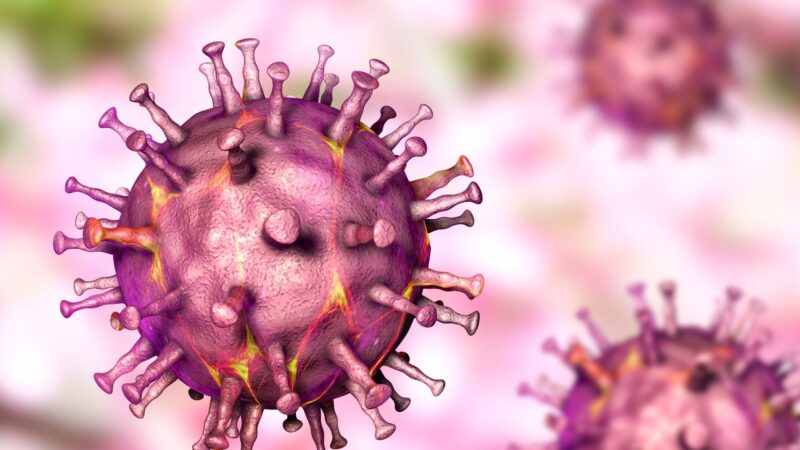African Swine Fever (ASF) is a highly contagious and often fatal viral disease affecting pigs. In this article, we’ll delve into the details of ASF, including its history, symptoms, and prevention methods. We’ll also address some frequently asked questions and discuss whether it’s safe to consume pork from pigs infected with ASF.
African Swine Fever (ASF) is a viral hemorrhagic disease affecting domestic and wild pigs. It’s caused by the African swine fever virus, which belongs to the Asfarviridae family. This highly contagious disease often results in high mortality rates in pigs, leading to significant economic losses in the swine industry.
As we explore this important topic, you’ll gain valuable insights into ASF’s background, its contagious nature, and how it’s diagnosed. We’ll also cover frequently asked questions, offering practical advice for those concerned about ASF and its potential impact on their lives.

How Contagious Is African Swine Fever?
ASF is highly contagious among pigs, spreading through direct contact with infected animals, their body fluids, or tissues, as well as indirectly through contaminated feed, water, equipment, or clothing. The virus can also be transmitted by ticks and other biting insects. Although ASF doesn’t affect humans, it’s crucial to follow proper biosecurity measures to prevent the spread of the disease in pig populations.
Background and History of African Swine Fever
African Swine Fever was first identified in Kenya in 1921, and it has since spread to other parts of Africa, Europe, and Asia. The disease has caused significant economic losses and disruptions to the swine industry, particularly in regions where pig farming plays a major role in food security and livelihoods. Efforts to control and eradicate ASF have been ongoing for decades, but outbreaks continue to occur, highlighting the need for continued vigilance and research.
What Are the Signs and Symptoms of ASF in Pigs?

Symptoms of ASF in pigs can range from mild to severe and may include fever, loss of appetite, lethargy, vomiting, diarrhea, skin reddening, and difficulty breathing. In severe cases, pigs may experience hemorrhages and sudden death. The severity of the disease varies depending on factors such as the strain of the virus, the pig’s age, and its immune status.
How Is African Swine Fever Diagnosed?
ASF is typically diagnosed through laboratory testing of blood, tissue, or swab samples from affected pigs. These tests include polymerase chain reaction (PCR) assays, which detect the presence of the virus’s genetic material, and enzyme-linked immunosorbent assays (ELISAs), which identify specific antibodies produced in response to the infection.
How Can ASF Be Prevented?
Preventing ASF involves implementing strict biosecurity measures on pig farms, such as controlling access to the farm, regularly cleaning and disinfecting facilities, and properly disposing of waste and dead animals. Additionally, monitoring pig health and reporting any suspected cases of ASF to the authorities is essential for early detection and containment of the disease.
Related: Do Pigs Eat Their Own Poop? | Information and Facts
How Do You Treat ASF in Pigs?
There is currently no effective treatment or vaccine for ASF. Management of the disease primarily involves culling infected pigs and implementing strict quarantine measures to prevent further spread. Ongoing research aims to develop new vaccines and treatments, but for now, prevention and containment remain the most effective strategies.
Frequently Asked Questions

Can Humans Carry African Swine Fever?
No, ASF does not infect humans. It only affects pigs and is not a public health concern.
What Happens if You Eat Pork With ASF?
While consuming ASF-contaminated pork is not considered harmful to humans, it’s crucial to cook pork thoroughly to eliminate any potential risks of foodborne illnesses caused by other pathogens. Additionally, eating pork from infected pigs may contribute to the spread of the disease in pig populations, so it’s essential to support efforts to prevent and control ASF.
How Long Does ASF Last?
ASF can persist in the environment for varying lengths of time, depending on factors such as temperature and humidity. The virus can survive for months in frozen meat, several weeks in contaminated pig pens, and up to a week on contaminated clothing or equipment. Proper biosecurity measures are necessary to prevent the spread of the virus.
Can ASF Be Killed by Cooking?
Yes, ASF can be killed by cooking. The virus is inactivated at temperatures above 60°C (140°F) for at least 20 minutes. Nonetheless, it’s important to avoid consuming pork from infected animals to prevent the further spread of the disease.
How Is African Swine Fever Transmitted?
ASF is transmitted through direct contact between infected and healthy pigs, contact with contaminated objects or materials (such as feed, water, equipment, and clothing), or via vectors like ticks and other biting insects. The virus can also spread through the consumption of contaminated pork products.
How Fast Does ASF Spread?
The rate at which ASF spreads depends on various factors, including the density of the pig population, the virulence of the virus strain, and the effectiveness of biosecurity measures in place. In some cases, ASF can spread rapidly, leading to high mortality rates and significant economic losses.
Can Swine Fever Be Cured?
Currently, there is no cure for ASF. The primary strategy for managing the disease involves culling infected animals and implementing strict biosecurity and quarantine measures to prevent further spread. Researchers are working to develop vaccines and treatments for ASF, but these are not yet available.

Final Thoughts
African Swine Fever is a highly contagious and often fatal disease that affects pigs, causing significant economic losses and disruptions to the swine industry. While humans are not at risk from ASF, it’s crucial to support efforts to prevent, control, and eradicate the disease to protect pig populations and ensure the sustainability of the swine industry. By staying informed and implementing proper biosecurity measures, we can contribute to the fight against this devastating disease.
List of Sources
African Swine Fever – Fast Facts
The Center for Food Security & Public Health – African Swine Fever
African Swine Fever – A Producer’s Guide to the Federal Emergency Response Process
